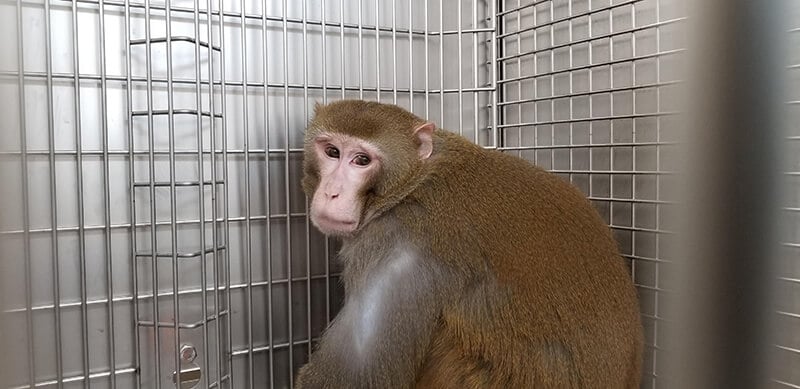Justice for Cornelius: Officials Must Not Allow WNPRC to Continue to Evade the Law
PETA is urging the Dane County, Wisconsin, district attorney to consider how the latest raft of violations of federal animal welfare guidelines at the University of Wisconsin’s Wisconsin National Primate Research Center (WNPRC) underscore the dire need to issue criminal charges and conclude the court case filed on behalf of Cornelius, a macaque who for years was held in solitary confinement there, in apparent violation of the state’s cruelty-to-animals laws.

PETA began asking the district attorney to prosecute the crimes against animals in the laboratory in May 2021, after our undercover investigation into the facility revealed the appalling condition of monkeys imprisoned there. In June 2022, after a year of no meaningful action by the district attorney, PETA petitioned the court to appoint a special prosecutor to step in. The court has given the district attorney until May 12, an additional five weeks, to provide an update. But now that reports obtained from the National Institutes of Health (NIH) show ongoing neglect and abuse of animals held at the WNPRC, it’s imperative that he act to bring a small measure of justice for Cornelius.
PETA is also filing a complaint with the U.S. Department of Agriculture (USDA), requesting swift punitive action against the university for the latest laundry list of violations found in NIH reports.
Among other violations at the WNPRC, the reports reveal the following:
- Over a five-year period, 35 baby rhesus macaques didn’t receive adequate pain relief after undergoing cerebrospinal fluid collections.
- One animal caretaker administered a blood sugar treatment and a liver function support treatment to the wrong monkey. Along with misidentifying the animal’s ID number, the caretaker also failed to write the entire animal ID number on the treatments—allowing the error to continue for a full week.
- Laboratory personnel performed 29 blood collections each on three macaques, even though the protocol was only approved for 20 blood collections per animal.
- Workers allowed incompatible monkeys to access each other, and their stressful, unnatural setting led them to scratch and bite each other. An adult macaque as well as two juveniles sustained injuries that required veterinary intervention, including fluid therapy and the administration of antibiotics and anti-inflammatory medication.
You Won’t Believe the Misery Cornelius Has Endured at the WNPRC
Cornelius, who was born at the WNPRC in 2010, was separated from his mother as an infant. Experimenters infected him with the dengue virus when he was 4 years old. As a baby, he suffered from full-body rashes. As a juvenile, he was plagued with persistent diarrhea, a common sign of stress in caged monkeys. For years, he was warehoused in solitary confinement, adding psychological suffering to the physical torment inflicted on him by the WNPRC.
Here’s What You Can Do to Help Cornelius
State and federal officials must not stand by and allow the WNPRC to continue to evade the law. Cornelius must be moved to a reputable sanctuary before it’s too late. There, he could live the rest of his days free of loneliness, dread, and despair.

